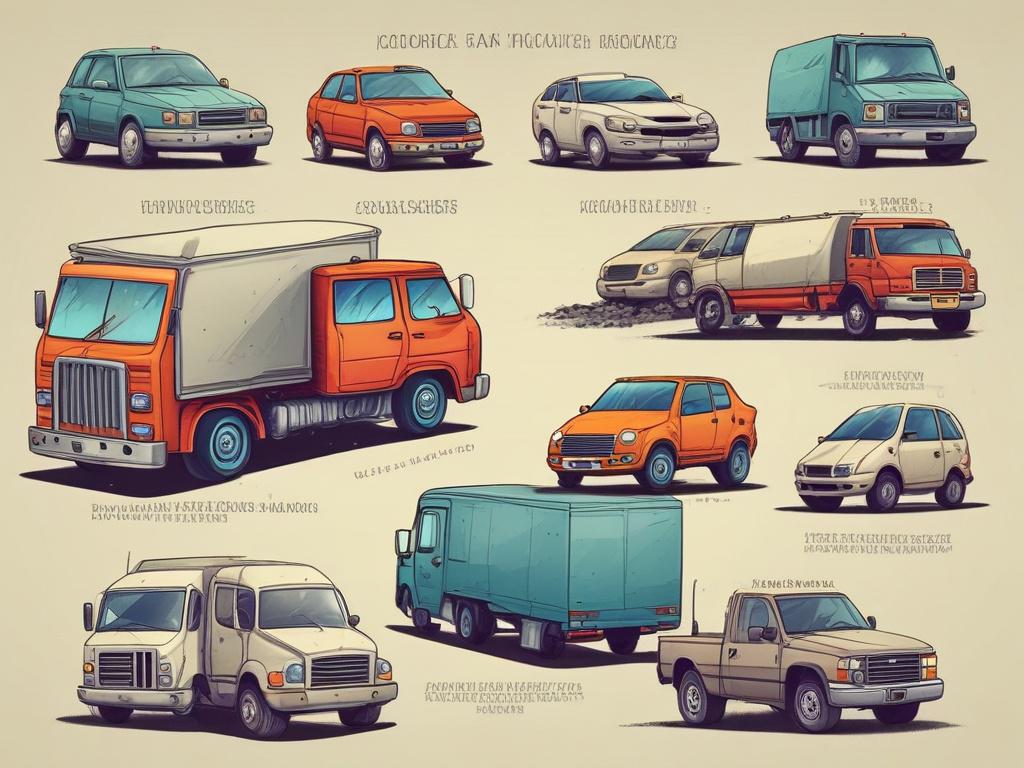
When it comes to road safety, truck accidents present a complex landscape that sets them apart from typical car accidents. Understanding the nuances of these cases is crucial for anyone involved in a collision with a large commercial vehicle.
This blog post aims to explain the differences between these types of cases, shedding light on the specific challenges, regulations, and liabilities that arise when trucking is involved in an accident.
Truck accident cases are inherently more complex than car accident cases due to several critical factors. Firstly, the size and weight of commercial trucks pose a significant risk during collisions. A fully loaded truck can weigh up to 80,000 pounds, whereas the average passenger vehicle weighs around 4,000 pounds. This disparity in size often results in more severe injuries and damages, leading to more extensive legal considerations. Additionally, the nature of commercial trucking operations, including long hours, demanding schedules, and the pressure on drivers to meet delivery deadlines, further complicates these cases.
Further, multiple parties often share responsibility in truck accident cases, whereas car accidents typically involve just the drivers. In a truck accident, you may need to consider not only the truck driver but also the trucking company, maintenance providers, and even manufacturers if equipment failure is involved. This multi-faceted responsibility can lead to complicated liability issues, where establishing fault often requires extensive evidence and expert testimony.
Truck accidents often involve intricate layers of rules and regulations that govern the trucking industry. Federal agencies, such as the Federal Motor Carrier Safety Administration (FMCSA), enforce strict rules that dictate how truck drivers and trucking companies operate. These regulations cover everything from driver working hours to vehicle maintenance standards, creating a framework that details the expected conduct on the road. This legal structure introduces complexity, as attorneys must navigate and apply these regulations to establish liability in truck accident cases. In comparison, car accidents typically involve simpler traffic laws that focus primarily on the actions of the individual drivers, making them less complicated to resolve.
Liability in truck accident lawsuits is not limited to the driver alone, which adds another layer of complexity. Trucking companies often share liability, especially if they neglected their responsibilities by failing to train drivers properly, maintain vehicles, or comply with safety regulations. In some cases, manufacturers of truck parts or cargo loaders may also share some of the blame. As a result, determining fault requires a thorough investigation into multiple parties and their respective roles in the accident. Such complexities contrast sharply with car accidents, where liability usually rests primarily with the drivers involved.
Truck accident cases present unique challenges that attorneys and victims must navigate. One major issue is the complexity of gathering evidence. Trucking companies often maintain extensive documentation and data related to their operations, including electronic logging devices that track driver hours and truck maintenance records. Accessing this information can be challenging due to corporate secrecy or the potential for data deletion after a specified period. This can lead to delays in establishing a clear understanding of the circumstances surrounding the accident. In contrast, car accidents often involve simpler evidence, such as police reports, insurance claims, and witness statements, making them easier to manage.
Another significant challenge in truck accident cases is determining liability. Multiple parties may share fault, including the truck driver, the trucking company, vehicle manufacturers, and even third-party vendors responsible for vehicle maintenance and upkeep. Each party typically has its own insurance policy and legal representation, which can complicate the claims process. This issue contrasts sharply with car accidents, where responsibility usually falls on one or two drivers. Additionally, truck accident cases may involve federal regulations and industry standards, further complicating the legal landscape. Victims of truck accidents face an uphill battle in establishing liability and securing compensation, making these cases more intricate than typical car accidents.
After you have a truck accident, get in touch with us at Kurtz, Peters, and Associates to navigate the injury claim process. We can provide advice and help you navigate this complex situation.